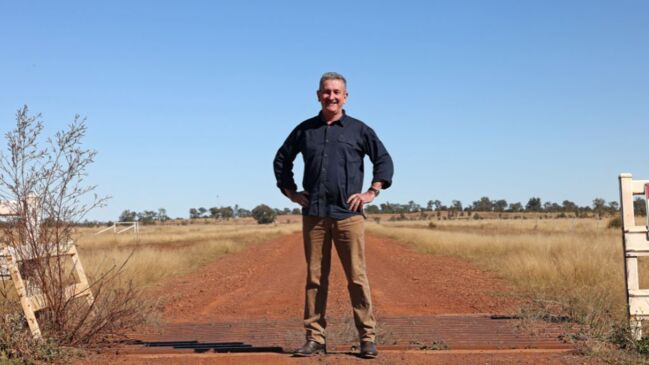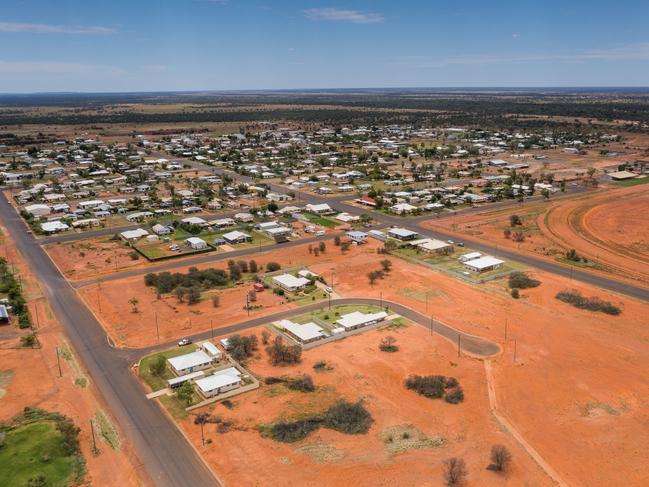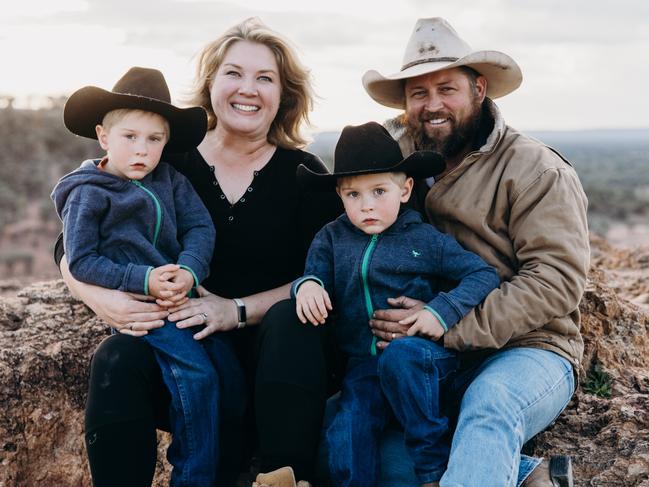Bush Summit 2024: Regional Australians reveal biggest concerns
Australians living in the bush have revealed their biggest concerns, many of which reflect those of their city-slicking cousins.

QLD News
Don't miss out on the headlines from QLD News. Followed categories will be added to My News.
Australians living in the bush are struggling with cost of living and housing affordability as much as their city counterparts, and desperately want the lack of health services and rampant crime addressed.
Despite living in traditionally cheaper areas, News Corp Australia’s exclusive Mood of the Bush survey reveals three-quarters of regional Australians believe the spiralling cost of living is their biggest concern, and almost one-third believe housing is a critical issue.
This story is part of News Corp Australia’s Bush Summit series celebrating rural and regional Australia and championing the issues that matter most to those living in the bush. You can read all our coverage here
An alarming 43 per cent or regional Australians surveyed by SEC Newgate Australia say they are currently experiencing financial difficulties – slightly higher than the 42 per cent in the nation’s cities.
The figures may concern the 20 per cent of city dwellers who want to move to the regions – however, regional Australians are happier with eight in 10 reporting their overall quality of life is very good or good.
Regional Capitals Australia chair Kylie King said it is no surprise that regional dwellers are happier than their city counterparts with more laid-back environments and easier commutes being well-known drawcards.
But the lack of affordable housing had left communities distressed and lower-than expected population growth meant key skills were lacking.

“Population growth in our regional cities haven’t kept up with what the forecasters in government potentially had expected,” she said.
“You feel like some of those population growth factors haven’t been recognised over a period of time, so it’s definitely a challenge.”
The survey included 1244 respondents and found 75 per cent of regional Australians believed reducing cost increases for household bills and other essential expenses was extremely important, compared to 73 per cent in metro areas.
According to the survey, 58 per cent of regional Australians believed the availability of rental housing was extremely important – in line with metropolitan respondents.
Aussies in the bush also wanted welfare payments and pensions increased, while the issue as not in the top 10 for those surveyed in the city.
The study found 74 per cent of people unprompted said the cost of living was the issue of most concern, and four out of 10 of those living in regional Australia said they were experiencing financial difficulties.
This was followed by housing affordability from 28 per cent of regional respondents, reflecting the crippling state of the housing and cost of living crisis on the entire nation.
Regional Queenslanders were the most concerned with housing affordability, followed by WA and NSW, while Victorians were the least concerned.
Ms King, who is also the mayor of Albury City, said to address the housing shortfall the federal government must ensure migration to regional communities brings with it skills to meet the challenges in the construction sector.
“Also improving the availability of social housing to really ensure that the most vulnerable can get a home,” she said.

“We do recognise that the rental market is particularly tight due to the growth in our regional cities.
“In Queensland for example, we know that some of our regional cities like Bundaberg, Mackay, Rockhampton, Toowoomba, Cairns, all have less than 1 per cent vacancy rates for rentals.”
Ms King said the skills shortage was also negatively impacting regional communities’ access to health.
She cited National Skills Commission research, which found that of the 77 health professional occupations assessed for the skills priority list back in 2021, 29 per cent of those essential occupations were found to be in shortage.
“Again, you’ve got that key worker housing issue, needing to find specialists and key workers into regions, the health problems links to the housing problems, and links to the migration issues and we hear the angst that people are feeling,” she said.
Property Council of Australia Queensland executive director Jess Caire said regional areas could become part of a vicious housing cycle.
She said many of the underlying factors that exacerbated affordability concerns were felt more heavily in the regions.
“Access to trades and materials is problematic in remote communities and this can have a flow on impact on the cost and time of building new housing,” Ms Caire said.
“Underemployment in regions leads to a lack of housing investment which in turn restricts a regional area’s ability to attract new skills and workers as there is simply nowhere for them to live.”

Ms Caire said regional and remote rental markets can face volatility due to a lack of housing supply, leaving these areas vulnerable if there is a sudden surge in demand for housing.
“To respond to this, we need to become more agile in how we deliver housing,” she said.
“Embracing modern methods of construction, prefabricated housing and modular homes will be a boon for regional areas and will help us deliver housing more cheaply, efficiently and flexibly.”
She also implored the government to pull every lever when it comes to creating new housing supply.
The survey also found overall the mood of regional Australians trumped that of residents of all major cities across the country.
When asked to select emotions felt in recent weeks, 43 per cent reported feeling more positive emotions than negative ones, versus 39 per cent in metropolitan locations.
Eight in 10 rated their quality of life in regional Australia as being at least good with slightly higher ratings in Western Australia, Victoria and Queensland.
Ms King said she was not surprised.
“Having been someone who’s lived in a capital city who has moved to the regions, I think it’s that laid back atmosphere, dealing with less congestion and busyness that you often encounter in the major cities that seem to be growing at such a rapid rate and it can be overwhelming” she said.
“I hear from my regional friends and networks it’s that connectedness that we still have, that ability to still belong in service clubs, to commit behind fundraisers in your communities or be actively involved in sporting clubs and schools.”

CAN’T BEAT THAT FRESH COUNTRY AIR
A country life is a happier life, according to this former Ipswich couple.
Heather and Matt Stennett moved from Spring Mountain to their new home at Quilpie in southwestern Queensland in early April, and have loved it ever since.
Mr Stennett’s parents joined them and he and his father now run a building company out of the town.
Their twin five-year-olds, Levi and Angus, have also enjoyed the fresh country air, spending more time outdoors.
“They used to get up at about 4.30 in the morning but out here they sleep through until about 6am,” Mrs Stennett said.
“They are really calm and relaxed and happy out here, not stressed out like they were in the city.
“Kids can pick up on that stuff.”
Originally published as Bush Summit 2024: Regional Australians reveal biggest concerns


